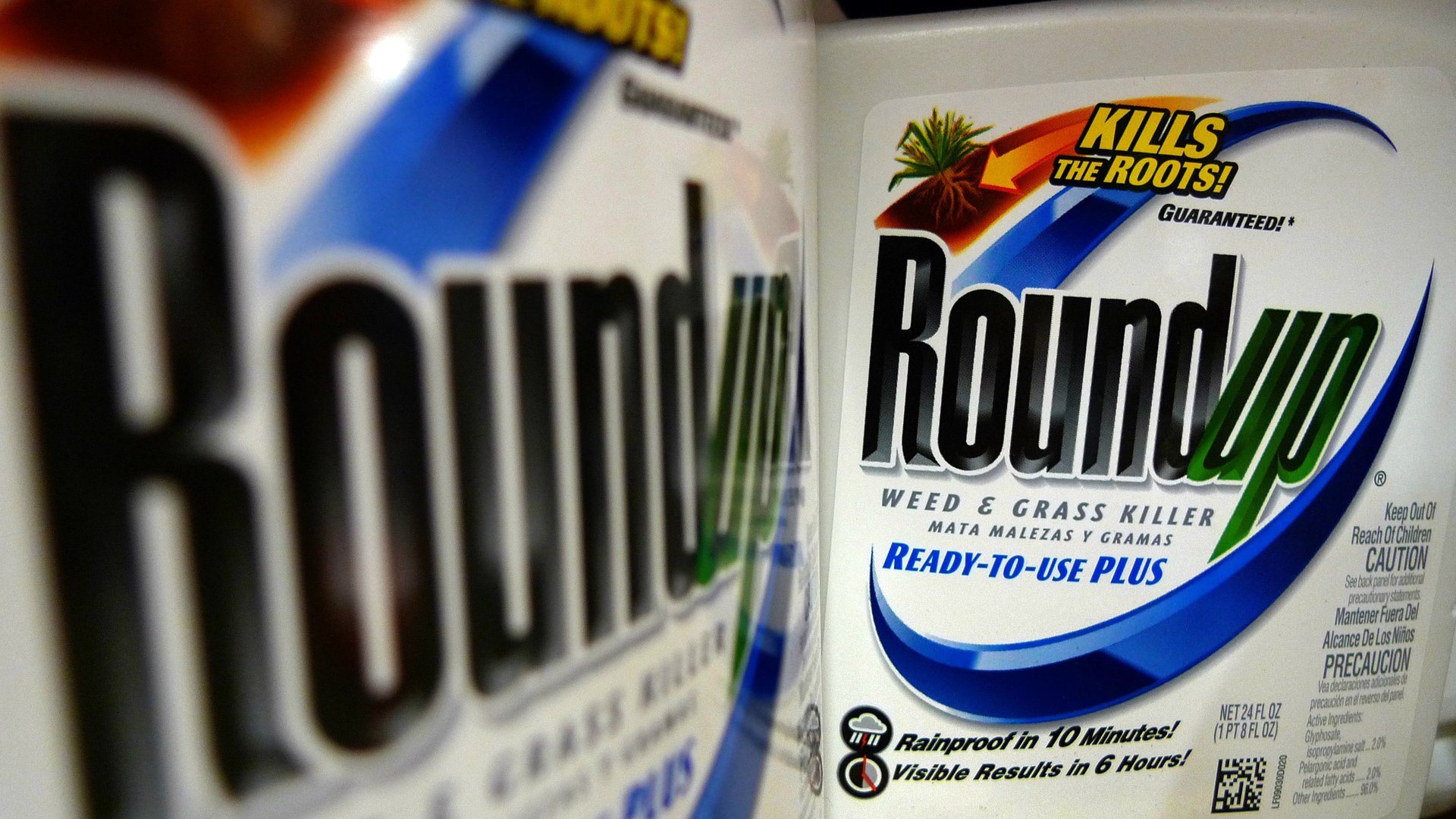In a blistering move, the EU tells Monsanto it isn’t above democracy
Monsanto, the controversial US agrochemical company, has kicked up some fresh drama in Europe.


Monsanto, the controversial US agrochemical company, has kicked up some fresh drama in Europe.
Regulators in nations around the world have spent the last year considering the implications of three farm-industry mega-mergers, including the acquisition by Bayer, the German pharmaceutical and chemical giant, of Monsanto. That $66 billion deal, which is still pending, would make Bayer-Monsanto the world’s largest seed and agriculture chemicals company. Bayer originally expected the deal to be wrapped up in 2017, but it’s been pushed back because it still needs approval from the European Union, which is working to figure out if the merger would create unfair competition in the pesticides and seeds markets.
Friction between Monsanto and the European Parliament started when the company last week (Sept. 28) said it would not participate in an Oct. 11 hearing to consider allegations that it wrongfully influenced regulatory research regarding the safety of glyphosate—a main ingredient in one of the company’s most popular products, the weed- and grass-killer RoundUp. In response, parliament booted all Monsanto’s lobbyists from parliamentary proceedings, and closed off access to its 751 individual members.
“Those who ignore the rules of democracy also lose their rights as a lobbyist in the European parliament,” Belgian parliamentary member Philippe Lamberts told The Guardian. “US corporations must also accept the democratic control function of the parliament. Monsanto cannot escape this.”
Concerns over industry-funded research have grown in recent years, and have become a problem for a few multinational food companies and their industry groups. Some examples:
- In 2015, The New York Times detailed how Coca-Cola has paid high-profile (paywall) scientists to support a narrative that to maintain a healthy weight, people should focus more on getting exercise and less on the specific calories from foods and drinks they consume.
- In 2016, the Associated Press published an investigation showing how the National Confectioners Association (which represents Hershey’s and other big candy companies) had funded research that was published in journals that included Food and Nutrition Research. One of those studies claimed children who eat candy often weigh less than children who don’t.
- Also in 2016, the Journal of the American Medical Association published a piece claiming the sugar industry in the 1960s launched a campaign in which it paid for nutrition research to downplay evidence linking America’s rising sugar consumption to heart disease.
When these and similar stories break, consumer trust in major brands erodes. At the end of 2015, the Center for Food Integrity found people were increasingly skeptical of big food companies and the ingredients used in processed goods. So it makes sense that advocacy groups are currently scrutinizing Monsanto, given the numerous allegations that have been made that the company has commissioned science favorable to its bottom line. In some cases, it appears the company ghost-wrote some academic safety reviews, according to Bloomberg. The US-based advocacy group Right to Know, which receives a bulk of its funding from the Organic Consumers Association, has compiled much of the key documentation to support the allegations here.
The company’s refusal to participate in a European parliament hearing to explore the matter isn’t going to help bolster its already battered image. (Consumer distrust in the company has generated a slew of amusing titles including MonSatan and the “most evil corporation on Earth.”) Despite repeat controversies and criticism, while Monsanto’s share price has taken hits during the last two decades, all-in-all it has continued to perform well.
For its part, Monsanto says it is happy to discuss glyphosate with EU lawmakers, just not the Oct. 11 forum. “This particular forum was not set up for substantive discussion related to the regulation and use of glyphosate,” said Scott Partridge, head of global strategy for the company, in a statement.
This story was updated to include comment from Monsanto.